The truly incredible Welshman who landed on one of the most dangerous places on earth and lived to 100 to tell the tale
On June 6, 1944, possibly the most dangerous places on earth were the beaches of Normandy. Some 4,414 Allied soldiers, sailors and airmen died that day. They landed on heavily-mined sands while facing a barrage of artillery fire from German machine guns. The Allied leaders knew the cost of the D-Day invasion would be high but were prepared to pay the price to liberate France.
Among the very first of them to land on those beaches, famously known by their codenames Sword, Gold, Omaha, Juno and Omaha, were those sent in before dawn. Among them was young Welshman Richard Pelzer, then aged 20. He and his comrades were tasked with clearing mines and incendiaries before further troops landed.
Incredibly, he survived and, now 100 years old, still remembers those gruelling moments he and fellow soldiers scoured French beaches for mines, bombs and traps. Corporal Pelzer, who was born in Llansamlet and now lives in Fforestfach, was awarded the 'Légion d'honneur' - the highest French order of merit - for his heroism. The bravery of him and his colleagues paved the way for the end of the Second World War.
At the 80th anniversary of D-Day commemorations in Swansea, Cpl Pelzer was the guest of honour at a special service at St Mary's Church in Swansea city centre, and met with WalesOnline in the Quadrant shopping centre a few days later, as part of the Royal British Legion's efforts to raise awareness of D-Day locally, with an information and merchandise stall and a striking diorama of the D-Day beaches on display in the centre.
Speaking to WalesOnline and local PR firm reTHINK PR & Marketing, Cpl Pelzer discussed how he came to serve in the army and what he remembered from the extraordinary D-Day. "I left school at 14 to start my trade as a mason and I wanted to carry on my trade until I was 17 years of age, and I had a letter to report to the Home Guards to do my training because I was an apprentice," he began. "Then, at 19 years of age, I was called up to the army and I was automatically posted to the Engineers because, the simple reason is, I had done most of my training with the Home Guards.
"From that then, I was posted with the Royal Engineers and from the Royal Engineers we went to do a bit of training and then all army leave was stopped and lots of the Royal Engineer boys were sent to Scotland to start constructing the Mulberry harbours [two temporary portable harbours developed by the British during the Second World War to enable the fast offloading of cargo onto beaches during the Normandy landings]." For the latest Swansea news, sign up to our newsletter here
D DAY: Welsh sacrifice honoured on D-Day anniversary as First Minister pays tribute in Normandy
POLITICS: Man charged with using threatening behaviour after objects thrown at Nigel Farage
Cpl Pelzer continued: "After that, for the long time I was there, all leave was stopped - so I didn't see home at all - I was picked out to go on a shallow water diving course on Whale Island. From there then, we went into concealment area - and the next thing I knew then: D-Day had started - but before that, we left our concealment area a good while before the rest, joined our mothership and we were bobbing up and down in the channel, waiting! It was 4.20am going in [when we landed].
"So when the time came to go in, we boys - we were Number 12 beach clearance flotilla, a combined operations unit between all the forces - we had to clear the obstacles. After we cleared the obstacles and the invasion was in full swing, we went then to prepare for the Mulberry Harbour... our job was to put down anchorages... After that, once all the ports along the channel were captured, we went in to inspect them and see there's no booby traps and to get everything working with the supplies."
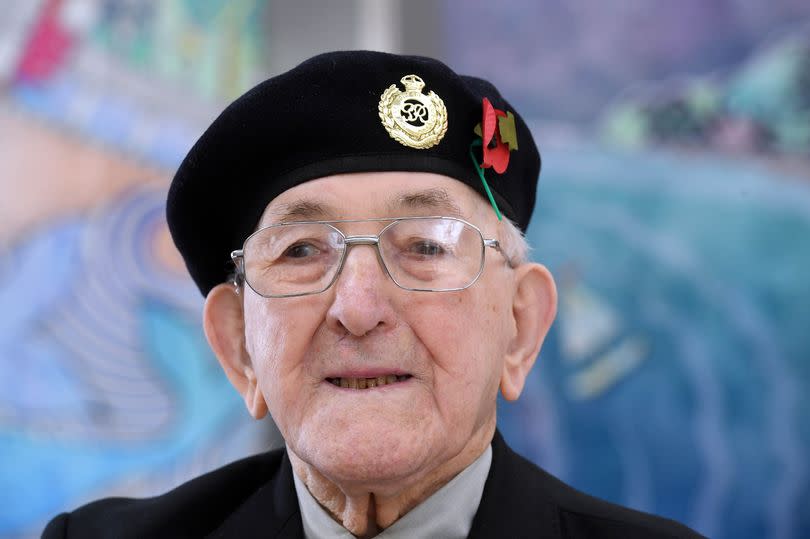
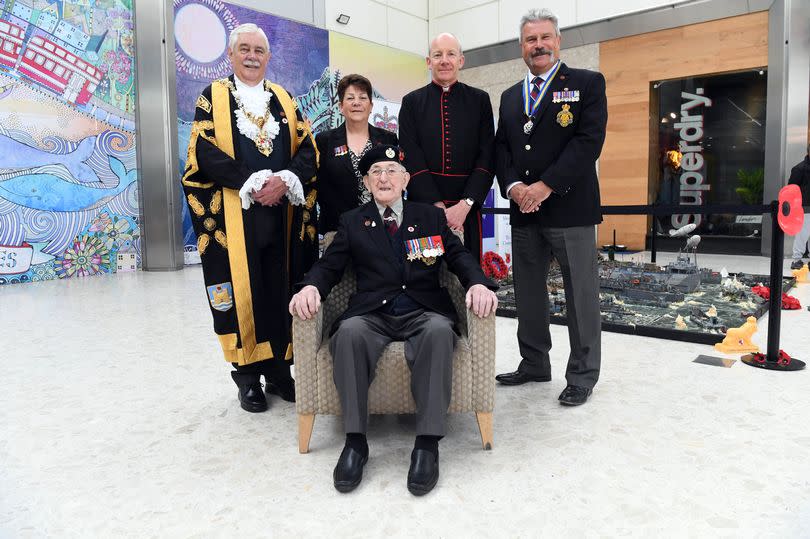
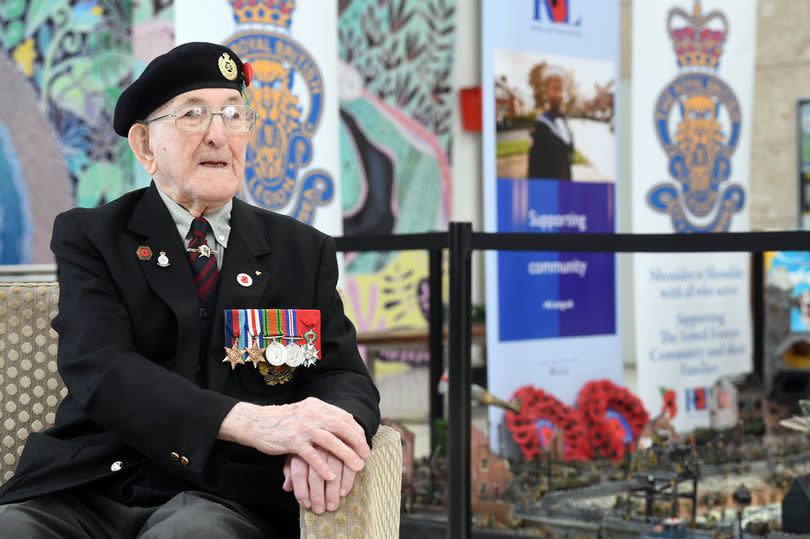
Later, Cpl Pelzer was stationed in Calais, before being called to Holland and then, finally, allowed leave back to Britain. But after just a month at home, he was called back up to serve abroad. Whilst he was expecting to serve in India, he said, he was actually sent to Ceylon (now Sri Lanka) and from there, was sent out to Singapore where he disabled mines and incendiaries again, before facing the unimaginable heartbreak in being tasked to help bury deceased Prisoners of War - an experience so devastating he's never felt able to discuss it, not even with his family.
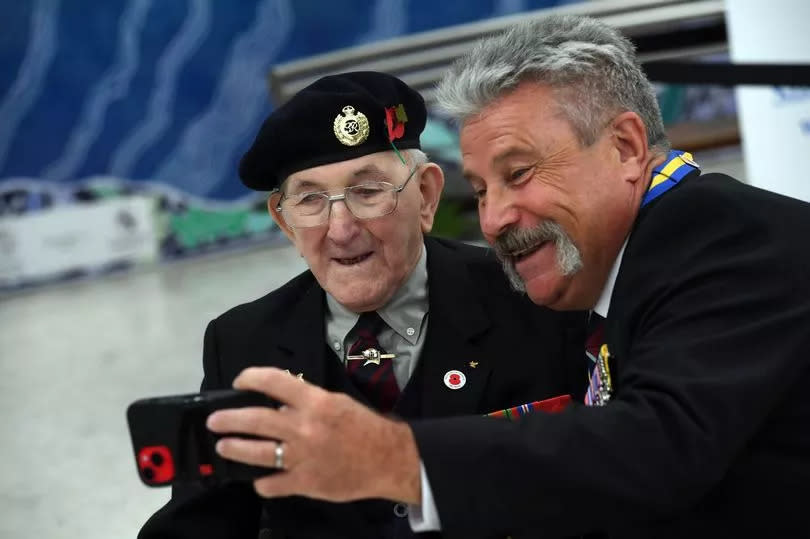
![Cpl Pelzer spoke to WalesOnline about his experiences at the D Day landings [pictured: Molly Dowrick's hands and Cpl Pelzer's hands and medals!]](https://s.yimg.com/ny/api/res/1.2/0pe9Sk1lYlaNaifrf3u72Q--/YXBwaWQ9aGlnaGxhbmRlcjt3PTk2MDtoPTYzOQ--/https://media.zenfs.com/en/wales_online_892/cf913185aa5f3bb19ed1afce837a642d)
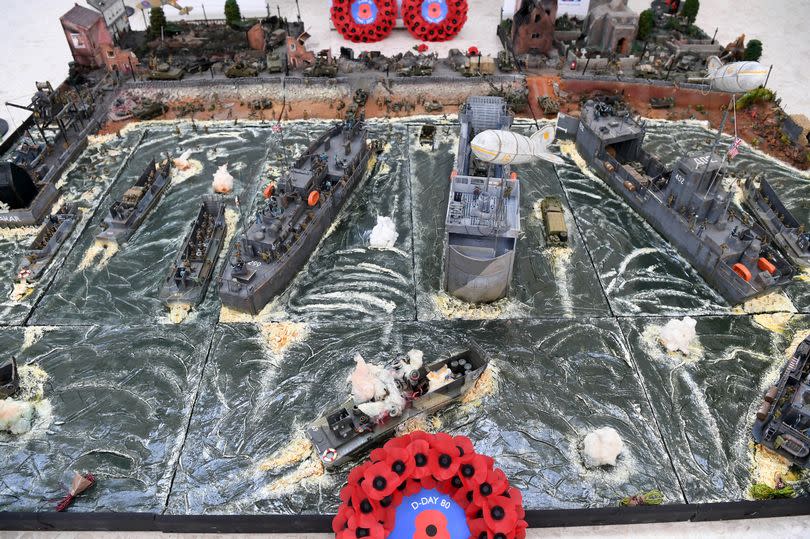
In the years following the war, and up until just two years ago, Cpl. Pelzer made several trips back to France to see the villages and communities he helped liberate. He said he had always been greeted warmly by locals and claimed many gave him flowers or cash to thank him for his sacrifices in the war and to ensure he knew his time serving was appreciated.
"One of my medals is the Legion d'honneur - the highest award France can give. In France, I'm equivalent to a 'Sir' in this country: I'm a Knight 2nd Class of the Legion d'honneur," Cpl. Pelzer said. "Whenever I go to France, I get free medical care, free entertainment, free taxis - the children line up and give me flowers and once, locals gave me 200 Euros, so I wouldn't have to pay for anything during my stay. They're so grateful [for what we did]."
Cpl Pelzer has severe visual impairments and he and and his family proudly support Blind Veterans UK. If any readers would like to donate to this charity, they can do so online here. Or to donate to the Royal British Legion, go here.

 Yahoo News
Yahoo News 
